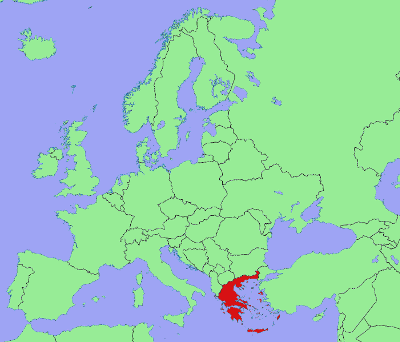
Circle the area on this map

C. The 300 members of Greece's parliament elect a prime minister who forms the government which runs the country. Parliament also elects a president to a five-year term, but that post is now largely ceremonial. Syriza won 149 seats in parliament and needed another party's help to gain a majority.
B. While consumers can buy goods for less money, deflation cuts business profits and idles workers who spend less in a downward cycle of more profit and job losses. The United States suffered from deflation and a 25 percent unemployment rate at the bottom of the Great Depression in 1933. Most economists consider deflation dangerous and favor a low rate of inflation, or rising prices.
B. While Germany was saved by the post-World War II deal, it leaders now adamantly opposed any more debt relief for Greece and other struggling European nations. Germany also has led demands that Greece and other European debtor nations adopt tough austerity measures. Opposition to austerity policies has also grown in Spain, Italy and Ireland.
A. The Eurozone is a monetary union of 19 nations which have adopted the euro as a common currency regulated by the European Central Bank. If Greece leaves the Eurozone, it would adopt and control its own currency.